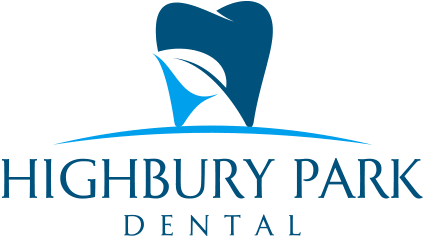Answers to Frequently Asked Questions about Direct Billing with Dental Insurance
If you’ve ever had to pay for an entire dental bill up-front, then you know how pricey dental treatments can get. Unfortunately, this often high cost for dental work can scare off patients from getting the treatments they need.
Instead, they will put off treatments or avoid their dentist altogether. And, over time, their oral health will deteriorate, and they will eventually need treatments that are more expensive than before.
Even if you have dental insurance, paying out-of-pocket upfront can be stressful. So to avoid scaring off patients, many dental clinics now offer direct billing.
Direct insurance billing relieves the stress of having to pay for an entire dental bill upfront. And it helps patients get the treatments they need before their dental problems worsen.
Here’s a look at how direct insurance billing works and how to avoid the stress of not having adequate dental coverage.
WHAT IS DIRECT BILLING?
Direct billing refers to an electronic transaction between your dental clinic and your insurance provider. During a visit to your dentist, your dental clinic will submit a dental claim electronically to your insurer with the total cost of the dental procedures you had completed that day.
After the claim is submitted, your insurer will respond with an invoice explaining how much your insurance plan will cover for your dental treatment(s). And the insurance company will pay your dentist directly for a percentage of the total cost.
As a result of direct billing, you will only have to pay for the remaining difference that your insurance plan doesn’t cover.
For example, say you had dental work that cost $250 and your insurance covered 90% of the cost. Your insurer would pay the dental clinic $225 directly, and you would only have to pay $25 out of pocket.
Direct billing is a quick, convenient way to pay for visits to your dentist, helping you save on time and upfront costs. With direct billing, you can avoid having to pay for the whole amount up front, submit a claim on your own, and wait for your claim to be processed and reimbursed.
WHY DON’T ALL DENTISTS ACCEPT PAYMENT FROM INSURANCE COMPANIES?
There are several risks involved for dentists who offer direct insurance billing, so some dentist may prefer to avoid these risks altogether.
These risks include:
- Liability if there are problems with the claim. Dentists may not receive payments from insurance companies if there is an issue with the claim. And dental clinics often won’t find out if a claim is denied until later on once the patient has left.
- Lengthy waits for reimbursements. Insurance companies can take up to 30 days to pay dentists, which can be too long of a time and cause cash-flow/payroll problems for some dentists.
- Stressful, time-consuming audits. Insurance companies may audit dental providers who submit insurance claims.
- Extra time and money spent on administrative duties. Dental clinics must stay up-to-date with the ever-changing claim policies.
WHY DOESN’T MY DENTAL PLAN COVER ALL TREATMENTS?
While dental plans are designed to help patients pay for dental treatments, there are usually some limitations. In an ideal world, insurance plans would cover 100% of the costs for all treatments. But with a plan like that, you’d likely have to pay quite a bit more than you currently do for your insurance plan.
Depending on how much coverage and the type of coverage you have, your plan might not cover all necessary treatments. And if you’ve already maxed out the yearly amount, or your plan is limited to a certain number of treatments per year, then you might be disappointed come time to visit the dentist.
To avoid disappointment and to budget accordingly, it’s necessary to go over your dental plan to see what your insurance covers and what it doesn’t cover.
To find out if your dental plan will cover a specific treatment, your dental clinic can submit a predetermination to your insurance company. Your insurer will then send you or your dental clinic the amount your plan will cover for the procedure.
Predeterminations are especially useful for figuring out if you can afford a costly procedure, or if you need to find an alternative payment method.
WHAT IF I CAN’T AFFORD TREATMENT?
If you can’t afford a treatment, either because your dental plan won’t cover it or you don’t have dental insurance, you can speak with your dental clinic about dental financing.
Dental financing is a flexible payment option that allows patients to get necessary treatments in an affordable manner. You can create a payment plan with your dental clinic so you only pay what you can afford while still getting the treatment you need. And the best part of all is that you can avoid the stress and pain from more costly dental health problems that worsen over time.
To get dental insurance and figure out the best plans for you and your family, ask your dental clinic for recommendations and a list of the insurance companies they work with for direct billing. Direct insurance billing and flexible dental financing options will help you avoid the stress of paying for entire dental bills upfront so you can keep more money in your pocket.

